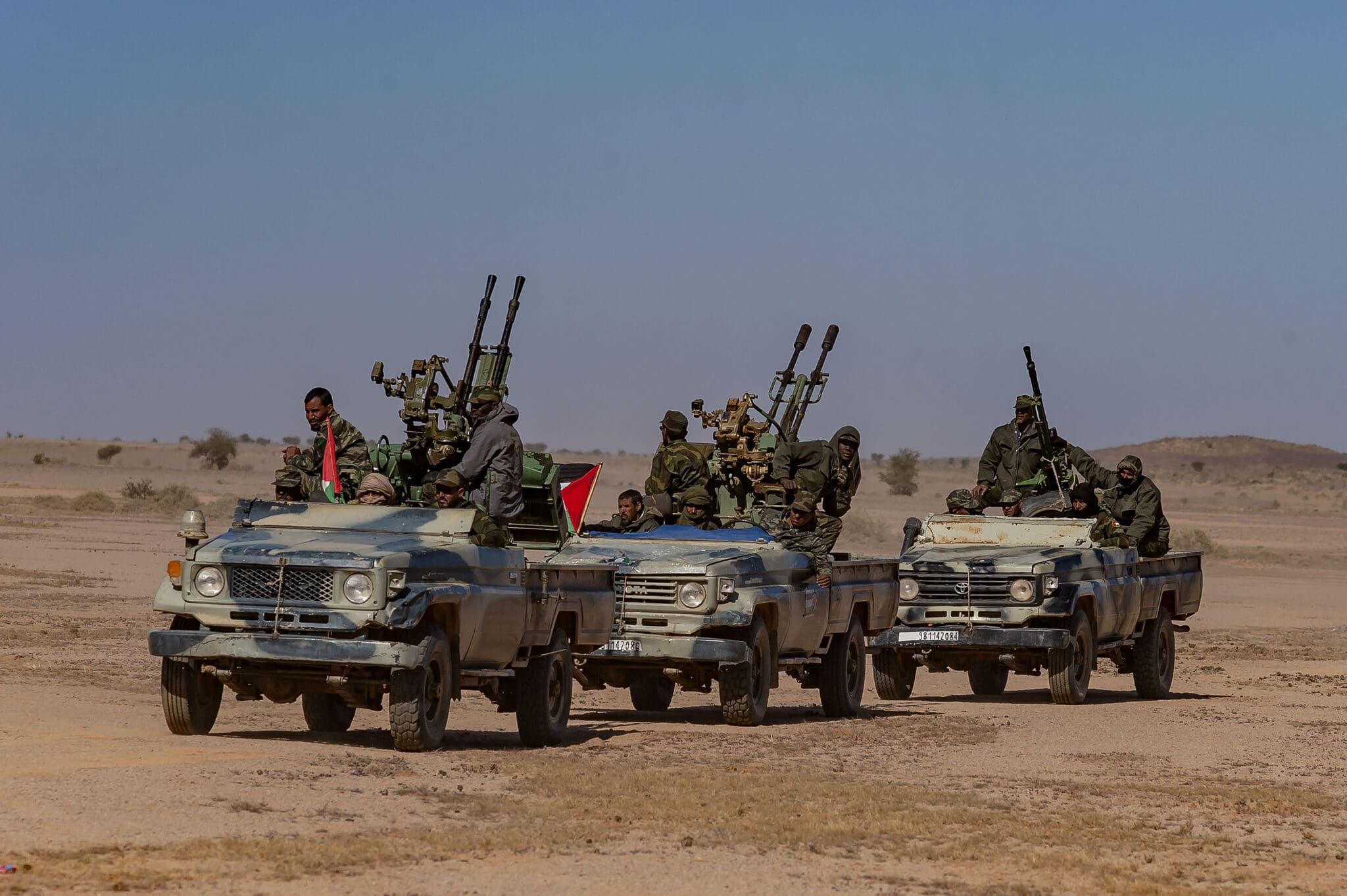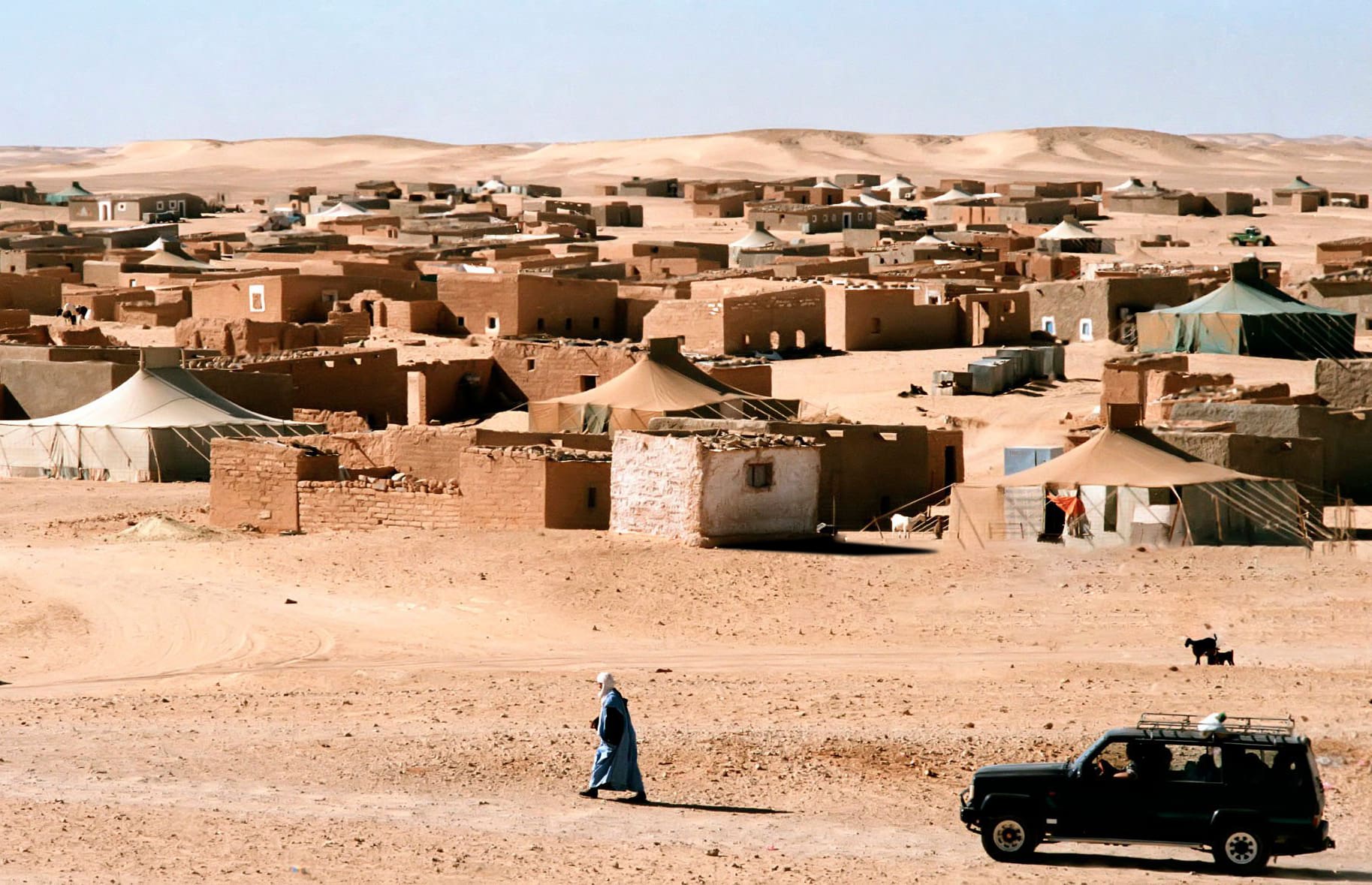CW: Mentions of sexual assault
Western Sahara, a territory situated in the North-West of Africa’s Maghreb, has been left behind by history. A victim of Moroccan ideas of national restoration and Spanish colonial objectives, the nation, which is home to almost 200,000 Indigenous Saharawi people, still struggles to decolonise. At the now notorious Berlin Conference of 1884-85, fourteen European nations sought to carve up, as King Leopold II put it, “This Magnificent African Cake”. During this ‘scramble for Africa’, convened by German Chancellor Otto von Bismarck, each member state was endowed with territories whose borders were artificially drawn for the convenience of mineral, rubber, and timber extraction. Western Sahara would be one of these territories.
At this time, 80 per cent of the African continent was under autonomous African control. The conference, with its arbitrary geographic boundaries, overruled these power structures in favour of European colonial convenience. Western Sahara has a rich history that stretches back to Berber tribal rule, which maintained contact with the Roman Empire. Its Saharawi inhabitants, who eventually adopted Arab linguistic and religious traits, were no exception to conquest. They currently live in modern-day Mauritania, Morocco, and Algeria – a region they call Trab el-Bidham. Indeed, in 1884, Spain claimed a protectorate over the entire coastline from Cape Bojador to Cap Blanc (which now represents the northern and southernmost boundaries of modern Western Sahara). Upon interaction with Saharawi nomads, Spanish invaders deemed these pastoralists the ‘Sons of the Clouds’ due to their ceaseless search for rain and fertile pastures for livestock.
The Saharawi were by no means passive onlookers to the theft of their territories. For decades, militant resistance to occupation, largely led by Saharan Moor Ma al-Aynayn, carried out an endless series of raids and rebellions. Targeting both Spanish and French colonials across the North-Western Maghreb, Saharawi resistance kept colonists at bay until 1934, when al-Aynayn was defeated at the battle of Marrakesh and Smara. Since then, an armed guerilla movement led by indigenous Western Saharans known as the Polisario Front, has resisted Spanish colonisers. Lasting until 1975, the region remained a colony known as Spanish Sahara, which eventually became a key strategic occupied territory due to its rich fisheries and phosphate mines. By 1975, however, Moroccan irredentism had reached all-time highs, with King Hassan II insisting on Spanish Sahara’s belonging to the greater Moroccan nation state.
Because of the state of the conflict with the Polisario front, pressures from neighbouring Morocco and Mauritania to cede its land, and UN calls for African decolonisation, Spain acquiesced to a series of treaties. As Spanish dictator Francisco Franco lay on his deathbed in 1975, the Madrid Agreement and the Western Sahara partition agreement were signed. The former officially ended Spanish colonial rule in the region and the latter partitioned Western Sahara into two: one-third of the country would belong to Mauritania and the remaining northern portion would be under Morrocan control. Neither of these accords involved consultation with Polisario or the wider Saharawi populace. Indeed, all parties believed that the region was ‘terra nullius’, or void of any human inhabitants. Polisario fiercely opposed these treaties, especially given the accords also granted the Spanish unfettered access to Western Sahara’s fisheries and 500,000 tonnes of its phosphate per year.
Soon thereafter, a 2700km sand wall known as a ‘berm’ was built, dividing the Moroccan-controlled western zone from the arid, Polisario-controlled eastern region. The berm was completed in 1987 with help from South African, South Korean, and Israeli advisors. Saharawis are not permitted to cross the boundary, an oppressive apartheid-like tactic which keeps the ethnic minority confined within the almost uninhabitable Sahara desert. Since then, eight more barriers have been built, the most recent of which was completed in December 2020. Reminiscent of the Apartheid ‘homelands’ system, demonstrations calling for the removal of these walls are regularly organised by human rights groups and Saharawi organisations.
This has been the condition of Western Sahara until the present day, resulting in mass migration of Saharawis to neighbouring countries. Indeed, the smallest manifestation of Saharawi identity in occupied Western Sahara warrants torture, imprisonment, and even death. The most notable ally of the Saharawi people has been Algeria, where refugee camps housing Saharawi immigrants operate as independent enclaves. It is the closest resemblance of independence the Saharawi have. Each camp has their own courts, schools, hospitals, museums, and electoral system. It is here, as well as in the Polisario-controlled East of Western Sahara, where Saharawi oral traditions, poetry, arts and culture flourishes in the most treacherous conditions. Poetry, for the Saharawi, is interlinked with struggle and their quest for independence, with many poets becoming political leaders within Polisario. Women tend to be the custodians of this tradition, encouraged to verbalise feminist expression as a part of the wider Saharawi matriarchy. It has become, as researcher Joanna Allen puts it, a “sword of resistance”. These poems have been translated from Hassaniya Arabic, the language of the Saharawi diaspora.
There is no government too usurper or cruel, or king too sovereign that can look me in the eyes and claim they are not guilty. They can’t, for they won’t forget the times I have faced them, exposed them, and won. - “I Am Sahara”, Salka Embarek

Your misfortune and mine go through similar courses: they stole our land, killed our parents, buried our history, made mornings afternoons, reduced to ashes tabaibas and tarahales . . . and I do not know if they already sold us or if they will sell us later. . . . - “Sahara”, Francisco Tarajano
No international media is permitted in the occupied territory, so most coverage of the dire situation in Western Sahara comes from refugee accounts in Algeria and elsewhere. In one particularly gruesome account, Moroccan security forces assaulted the president of the Saharawi organisation ‘League for the Defence of Human Rights and against Plunder of Resources’ in her own home in Boujdour, in occupied Western Sahara. In November 2020, Sultana Khaya was placed under house arrest for her human rights activities, and in May 2021, was assaulted by soldiers. Amnesty International reported that Moroccan forces later also sexually assaulted Khaya, her sisters, and her elderly mother. She is far from the only activist to experience assault and intimidation by Moroccan officials. Since fighting between Morocco and Polisario resumed in November 2020, Amnesty has recorded human rights violations in the form of torture or other ill treatment against against 22 Saharawi activists, journalists, human rights defenders, and minors. This targeted brutality strongly mimics the activities and tactics of the Apartheid regime’s Security Branch or Israel’s Mossad.
In another incident of state-sanctioned brutality, Moroccan military forces repeatedly beat and abused people they detained at the Gdeim Izik refugee camp on 8 November, 2010, in the Western Sahara capital city of El-Ayoun. After burning down 6,500 tents and incarcerating hundreds of refugees, soldiers reportedly opened fire on Saharawi civilians resisting the dismantling of their homes. The ensuing protests of these cases of brutality are commonly referred to as the ‘Third Saharawi Intifada’, which roughly translates from Arabic to ‘shaking off’. The protests are synonymous with civil unrest in the Palestinian context, and have been cited by linguist and philosopher Noam Chomsky as the genesis of the Arab Upirsings. Polisario contend that the Intifada claimed 36 Saharawi civilians’ lives and injured 1200 Saharawi protestors.
One thing is blatantly apparent, however. The West upholds and maintains this occupation absolutely. The United Nations classifies the region as a non-decolonised territory, and the majority of African Union countries (except for those who embraced American instead of Sino-Soviet foreign aid during the Cold War) support Polisario in its attempt to establish a Saharawi Arab Democratic Republic (SADR). Countries recognising Morocco and its claim over the region include the United States, Israel, France and, of course, Spain. Australia is yet to recognise the SADR, despite a 2004 Senate motion to “positively consider extending diplomatic recognition to SADR at the appropriate time”.
Australia’s inability to recognise the plight of the Saharawi is grounded in its vested interests in the region. In fact, we benefit from Moroccan occupation. Western Sahara’s phosphates are sold to Australian fertiliser companies by Moroccan-owned mining corporations. Used to produce superphosphate fertiliser essential in agriculture for improving pasture and many crops, the occupation of Western Sahara quite literally feeds millions of Australians. The purchase of these phosphates and production of superphosphate fertiliser is primarily bought by Impact Fertilisers Australia, a “leading supplier of fertilisers in Eastern Australia, including Tasmania”. We, as a student body espousing beliefs of global justice and solidarity, must call on our leading officials to totally and unconditionally divest from the Moroccan phosphate industry.
The issue was brought much closer to home in 2019, when the University of Sydney Law School invited Saharawi human rights activist and advocate Tecber Ahmed Saleh to give a speech at an event. Controversy erupted when the school abruptly cancelled her event, which had sold out. Saleh was to speak on the “legal, political and human aspects” of the Western Sahara situation, and soon thereafter it was revealed that the law school had been issued a warning by the Moroccan embassy. Though the contents of the warning are so far unbeknownst to students, USyd produced an explanation for the cancellation, citing an avoidance of “an unfortunate perception that the university as a whole takes a particular position on relevant issues”.
The University rejected claims that Moroccan pressure was a factor in the decision, claiming that the event “was not cancelled due to any external pressure, but because it was considered a double-up of a similar event featuring the same main speaker that was successfully held on campus just two and a half weeks earlier.” The events differed in that the speaker was set to discuss “legal, political and human aspects” of the Western Sahara situation, as opposed to decolonisation and human rights more broadly. This is one of many accusations of foreign meddling and interference in the University’s operations.
The Saharawi struggle is a global struggle. There will be no liberation for this oppressed minority without global condemnation of Spanish, Moroccan, and Mauritanian occupation of the region, complete removal of business interests and boycotting of Moroccan fishing and phosphate exports. All UN nations must recognise the SADR, and students across Australia and the world must mobilise to encourage such an outcome. Without global condemnation, as seen in South Africa during Apartheid, history will leave the Saharawi in a state of paralysis.
Oh you invaders! You, who seize the home, which the owners never asked you to take, know that colonisers have come since the days of Rome seeking subordinates they never could make. Ambitious kings have claimed our land as their own and found a resistance too strong to break. And now you say, sitting on your throne, to the reflection in your crown’s polished jade, There’s a small nation, internationally alone, I think I’ll move in and invade. - “The Army”, Al Khadra





